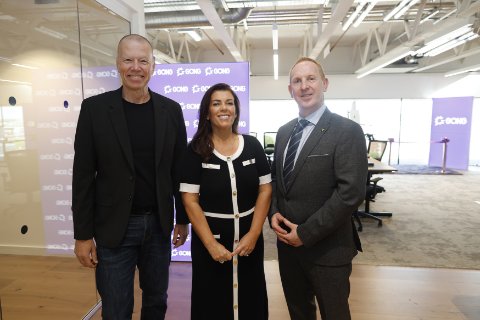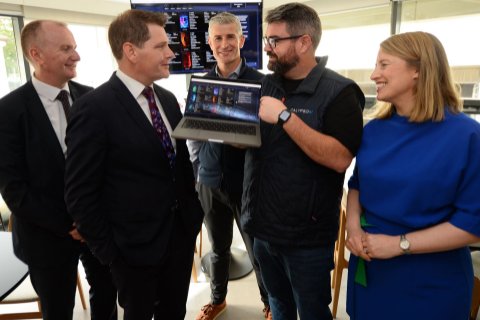The Elevate programme will create new AI screening algorithms to detect cerebral palsy quicker, while exploring new treatment options and support for affected families.
A new research programme has launched at University College Cork (UCC) that aims to improve the detection of cerebral palsy in Ireland.
The five-year programme called Elevate has received €11.6m in funding, supported by Science Foundation Ireland and The Cerebral Palsy Foundation. The initiative will bring a team of researchers and experts together to create cutting-edge AI screening algorithms to detect the condition quicker.
The programme will also establish a cerebral palsy registry in Ireland to track the rate of the condition and provide access to the best research and clinical trials.
Cerebral palsy is a group of lifelong conditions that affect movement and posture, with no known cure. It’s caused by damage that occurs to the developing brain before, during or shortly after birth. Those who have these conditions face significant challenges in their daily lives. It is estimated that roughly 12,500 adults and children have the condition in Ireland.
The Elevate team said delayed diagnoses can have devastating consequences for children and their families. The team aims to improve early intervention and care pathways to boost the outcomes and quality of life for people living with the condition.
The new programme was launched today (22 March) by Tánaiste, Minister for Foreign Affairs and Minister for Defence Micheál Martin, TD, who said Elevate has the potential to “transform lives and reshape the landscape of cerebral palsy research and care”.
“The Elevate strategic partnership programme marks a landmark investment and milestone in the collective efforts to address what is one of the most pressing challenges in healthcare,” Martin said. “We stand on the cusp of a new era in cerebral palsy research.”
The Elevate programme will be led by the Irish Centre for Maternal and Child Health Research (INFANT) at UCC, in partnership with RCSI University of Medicine and Health Sciences, Trinity College Dublin and maternity hospitals across Ireland.
Leigh Mc Gowran
This article originally appeared on www.siliconrepublic.com and can be found here
A new research programme has launched at University College Cork (UCC) that aims to improve the detection of cerebral palsy in Ireland.
The five-year programme called Elevate has received €11.6m in funding, supported by Science Foundation Ireland and The Cerebral Palsy Foundation. The initiative will bring a team of researchers and experts together to create cutting-edge AI screening algorithms to detect the condition quicker.
The programme will also establish a cerebral palsy registry in Ireland to track the rate of the condition and provide access to the best research and clinical trials.
Cerebral palsy is a group of lifelong conditions that affect movement and posture, with no known cure. It’s caused by damage that occurs to the developing brain before, during or shortly after birth. Those who have these conditions face significant challenges in their daily lives. It is estimated that roughly 12,500 adults and children have the condition in Ireland.
The Elevate team said delayed diagnoses can have devastating consequences for children and their families. The team aims to improve early intervention and care pathways to boost the outcomes and quality of life for people living with the condition.
The new programme was launched today (22 March) by Tánaiste, Minister for Foreign Affairs and Minister for Defence Micheál Martin, TD, who said Elevate has the potential to “transform lives and reshape the landscape of cerebral palsy research and care”.
“The Elevate strategic partnership programme marks a landmark investment and milestone in the collective efforts to address what is one of the most pressing challenges in healthcare,” Martin said. “We stand on the cusp of a new era in cerebral palsy research.”
The Elevate programme will be led by the Irish Centre for Maternal and Child Health Research (INFANT) at UCC, in partnership with RCSI University of Medicine and Health Sciences, Trinity College Dublin and maternity hospitals across Ireland.
Leigh Mc Gowran
This article originally appeared on www.siliconrepublic.com and can be found here



